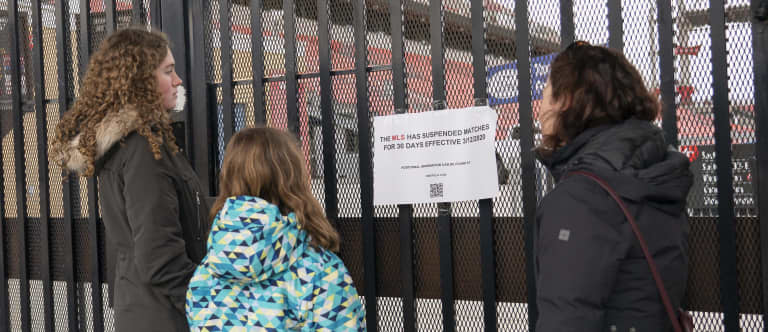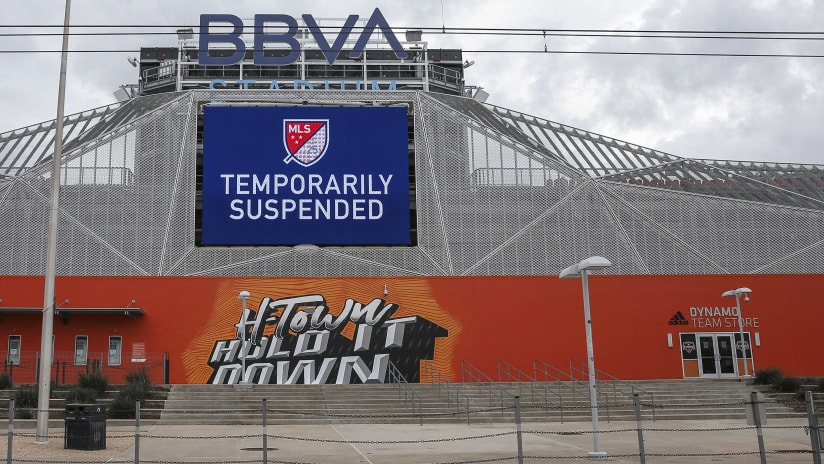When my mom died of breast cancer, daily life didn’t change much. I would do more of the same stuff I always did as a kid. But then I would go to tell her about my most recent accomplishment on NCAA ‘05, or explain how Andruw Jones needed to stop swinging at curveballs in the dirt — and she wouldn’t be there.
You know how we’re all on a giant rock out there in the universe hurtling at 67,000 miles an hour? You don’t feel that. A sense that you’re moving constantly just...isn’t. You don’t notice it’s not until you notice.
When you lose someone, everything without them still exists. It’s not until you look in the negative spaces that you remember there’s an absence. At first those spaces are everywhere. Everything you look at is secured to a reminder. Eventually, those reminders stop surrounding you and they drop in number but never in the weight of their impact. The recognition of absence is pulverizing. Every time.
To strip away the prose: It, like, really sucks, y’all.
Life without soccer
Take that to a microscopic level, that’s the feeling of not having sports. And I mean as microscopic as you can take it. That doesn’t mean it isn’t real. It just means it’s small.
I love soccer, I love sports in general and I love the basis for communities that rallying around sports provides. And to not have that basis at all this weekend felt strange. Like not being able to do something as simple as telling someone you care for about your day. However big or small, it is an absence, and it is real for so many of us.
There are genuine negative spaces in our lives now because there are constants that have disappeared. But to have negative spaces in the first place you have to have everything that exists around it. What exists around the negative spaces left by sports is the communities that we’ve built.
But the framework is missing. The day-to-day updates and matches are gone. Keeping everything together now relies on the crucial task of supporting each other whenever possible.
It’s a two-part process. The first part involves understanding that the risk we’re facing right now is real and that if we are genuine in the hope that caring for each other is an unshakeable part of who we are as people, then we will do what we can to keep each other safe.
If you’ve experienced loss then that sense of absence feels familiar on some level. If you’ve not experienced it then hopefully the idea that you might, or might cause someone else to, worries you on some level — a level far greater than the lack of sports. This is what we’re up against. This is real. It’s happening. So follow best practices and understand that even if your actions do not lead to negative consequences for yourself, they may lead to them for others.
Seeing empty stadiums and empty bars and empty everything is disheartening on so many levels. But keep in mind that these are clear indicators that our communities care enough for each other to sacrifice. Right now, an empty stadium is a sign of love.

What's next
The second part involves doing what we can to replace soccer’s primary function. The reason that communities form around the sport in the first place is because of the incredible distraction it brings. For a moment, you can come together to experience joy and anger and anxiety and more anger. And then you can talk about it with friends or go post about in a comments section or yell at Matt Doyle on Twitter. And all of that somehow results in connections and moments to forget what’s wrong and what’s inevitable, and it is one of the dumbest beautiful things we do as people.
But for now, that distraction is gone. And what kept us from thinking about what is bad and inevitable is missing at the moment when what is bad and inevitable feels more there than ever before.
I’d be lying if I had a definite answer on what to do next. I’m scared as all hell. And none of us have ever done this before. But I think there’s a chance that what might be next is this.
You and I have a responsibility, as members of the communities we’ve helped create around strangers kicking a ball, to be the distraction. As long as there aren’t new games, we’ll need to find jokes to make, stories to share, arguments to have, and everything else that accompanies the constant we’re now missing. Don’t dismiss them. Embrace on any terms. Someone else might need it. You might too.
Even if these moments are small, even if these moments are fleeting, even if they’re in little communities, believe that tiny changes can make large impacts over time and fight for each other. No one is an island, and any day during this not spent fighting for each other is wasted.
And then, when we get it right, we’ll be back. We’ll be different. But we’ll be back. And there will be an absence of absence.
We’ll try and remember what it was like to not have soccer in our lives but be too distracted by the crowd to complete the thought.











